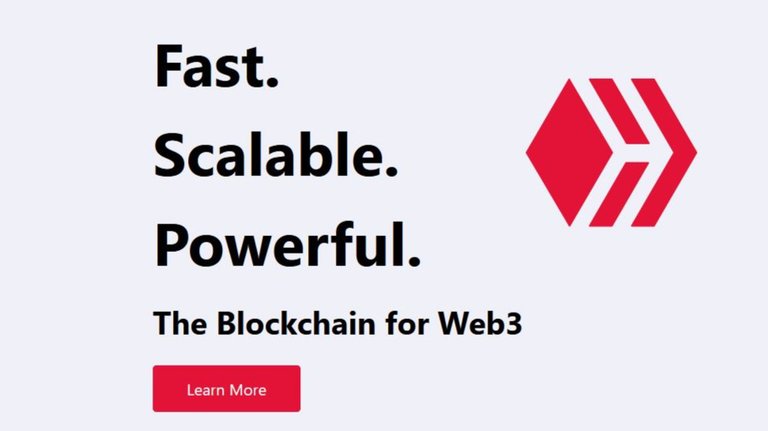AI is changing everything. This is benefitting Big Tech in a major way.
At the core of this is, naturally, Google. The company is a centerpiece of Web 2.0, a situation that is allowing them to flex their muscles as technology moves forward.
Google was basically handed control of the Internet by all of us. It became the undisputed leader in search, essentially making it the gatekeeper of information. This is becoming evident in the AI age.
Because of this, alternatives are going to be crucial. What happens when Google buries websites, which it is already in the process of doing?
Here is where something like Hive steps in.

Hive's Future Importance: Combatting Google
One of the realities of the Internet is how websites are affected the second Google changes its search algorithm. For many, if it is not seen high up in search, it vanishes.
Google's intention is pretty clear. The future of search is going to be AI. This means that individual websites such as bloggers or independent journalists are going to disappear. Google has no intention in directing traffic to these locations. Instead, it will simply pull the information and incorporate it into Gemini.
What does remain of traditional search will be paid. Of course, we already see this to a degree. The first sites listed are simply advertisements.
The end result will be a situation where only the biggest voices get through. This is why alternatives are crucial. Sadly, when it comes to traditional search, things like Duckduckgo and Bing are not much of a difference maker.
So what is the alternative? Simply put, it is a network designed around the idea of people freely expressing their ideas. This is complimented by AI trained specifically on that data, with reference to it.
This is a potentiality that Hive can provide.
Paid Promotion
It is only a matter of time before traditional search is pushed aside. The introduction of chatbots laid the foundation of the change that is coming.
Over the next couple years, people are simply going to ask Gemini, ChatGPT, Grok, or Llama questions and place inquiries there. Under this situation, there is no need for a website search.
What is important to note is the fact that we are getting to the core of what people are seeking. The challenge with Web 2.0 is that it is website based. Individuals do not want website; they want information. Sadly, due to technological limitations, this is what we were stuck with.
Often people have to scroll through dozens of websites to find what is sought. Chatbots eliminate this. Overall, this is a positive since the knowledge that is contained online is more accessible.
There is a major negative. We are quickly moving towards a realm where we are simply dealing with paid promotion. Those with the money to "bribe" the companies behind the models will be included.
In other words, one's Medium blog will mean nothing in the future other than possibly providing data for models. The directing of traffic will not occur.
Hive is the counterbalance to this.
Free Material
We have long discussed the idea of democratization of data. Anything posted on a permissionless blockchain qualifies as such. Hive allows anyone to set up an API and utilize what is posted.
If we reframe this, it also allows any individual to post what he or she desired. This means we are all able to fill the database as we see fit. Once this is included, others are able to develop their AI models based upon this data. Again, the key is anyone with the capabilities can do this. We are not only looking at a few major tech firms.
While some might simply scrape the data, the results will be inclusive as compared to what might end up taking place with the likes of ChatGPT.
We know this company is cutting deals with major publishers, paying the millions of dollars to keep their models updated. What do you think will happen if a major publication decides it wants a stronger voice in the model? Do they offer the data free to OpenAI? MIght they go one step further and pay for preferencial weighting in the model?
Network Over Website
The advatange that a Meta, X, or Google has is they are platforms. On the back end, there are networks that feed users information through the applications. People seek the information via the network.
On YouTube, as an example, we are not accessing websites. Individuals set up channels, which are found on a Google owned website. That is the first destination.
Here we see the importance of networks. It is more resilient than websites. This is the main premise of Medium and Substack. However, those are still contingent, in many instances, on search engines feeding traffic. What happens when this stops?
At the core of this is monetization. Traffic means money online. Websites, regardless of the type, need to monetize what is on the site. This could come from advertising or the selling of products and services. Either way, like a shopping mall, traffic is crucial.
Hive offers a different monetization structure. This is a major nugget. While Medium utilizes the network idea, the monetization mechanism is the same.
Therefore, it is the potential for a network to be a monetization vehicle that combats the likes of Google. Websites alone are going to be buried. In fact, they will be replace with AI agents. Under that scenario, what is the chance of success if said agents are all on Google's platform?
We know the answer to this one.
The threat of Big Tech is growing. Technology is moving quickly and they are the ones keeping up. Hive can help to offset this is people are aware of what is taking place.
Posted Using InLeo Alpha


 )
)